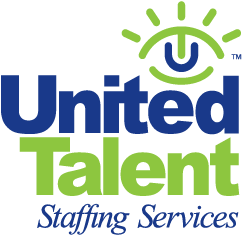From headlines to the executive rooms, it is no secret that businesses are experiencing unprecedented change in the workplace, driven by a transformation in employee expectations and the evolving nature of work itself. The focus has sharply turned towards creating roles that offer more than financial incentives, as companies must provide professional fulfillment and align with the emerging generation’s personal values.
As we’ve wrapped up Q1 and enter Q2, the key to employee retainment is not just in understanding these new priorities but in actively responding to them, developing an environment where talent is motivated to stay and advance. Join us as United Talent outlines strategies geared toward boosting associate retention.
The Continuous Evolution of Workforce Expectations
The widespread adoption of remote and hybrid work models has impacted many industries, significantly altering what employees expect from their employers. Today, work-life balance and personal well-being are essential to prioritize. Success in retention now depends on an employer’s ability to pivot benefits and work cultures to better meet these evolving needs.
Strategic Insights from Harvard Business Review
Recent insights from the Harvard Business Review underline a growing sentiment among employees’ expectations. In direct response to emerging needs, visionary companies are implementing innovative benefits such as comprehensive financial well-being programs to level off the cost of work and student loan repayment plans. HBR’s 2023 research found that 24% of employees rated their financial well-being as down from 27% two years prior. With the research in mind, forward-thinking organizations are addressing the immediate concerns of employees through strategies that signal a deeper commitment to their overall quality of life, playing a vital role in retention efforts.
Top-Down vs. Bottom-Up Management
A recent article featured on Fast Company describes the distinction between top-down and bottom-up management approaches as they become more relevant than ever in the context of retention strategies. Top-down approaches, where leaders set the vision and direction, and bottom-up approaches, which encourage input and feedback from all levels of an organization — each have their distinct place in modern business environments. However, effectively blending these styles can lead to a more dynamic workplace that respects traditional hierarchies while valuing the insights and innovations that emerge from every tier of the company. Creating a space encouraging employee engagement and participation can unlock new pathways for growth, associate satisfaction, and retention.
Implementing comprehensive employee development programs, such as mentorship initiatives and skill development workshops, exemplifies a hybrid approach to management. These programs empower employees by giving them a voice in their professional development and the future direction of the company. As a result, employees notably feel valued, ultimately reducing turnover rates.
Building Growth-Oriented Futures Together
The ability to attract and retain talent is more than a metric of success; it reflects a company’s adaptability and commitment to its employees. As organizations aspire to lead in this new era of work, the path forward starts with a pledge to understand and meet the evolving needs of your workforce.
Engage with a strategic hiring partner like United Talent Staffing and gain access to the expertise and support needed to navigate these complex retention challenges, turning them into opportunities for lasting talent success. Connect with us today and enhance your talent acquisition efforts for long-term growth.

